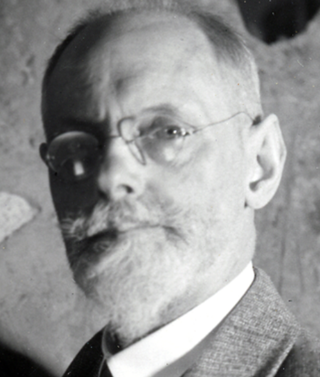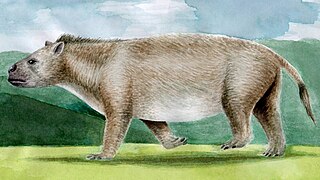Related Research Articles

Darren William Naish is a British vertebrate palaeontologist, author and science communicator.
The European Gliding Championships is a gliding competition held every two years.

Carl Johan Josef Ernst Wiman was a Swedish palaeontologist, the first professor of palaeontology and historical geology at Uppsala University, and the father of Swedish vertebrate palaeontology.
The European Association for International Education (EAIE) is a European centre for expertise, networking and resources in the internationalisation of higher education.
EBAN is an international, not-for-profit organisation whose function is to represent the pan-European early stage investor community, gathering member organisations and individuals from Europe and beyond. Originally targeted only to business angels, today EBAN is a cross sector representative of equity early stage investors.
The European Association for Chinese Studies is an international scholarly association representing China scholars from Europe. It was founded in 1975 and is registered in Paris. The Association is governed by a Board and its daily activities are managed by its president, secretary-general, and treasurer.
The French National Baseball team represents the French Federation of Baseball and Softball in international competitions, such as the World Baseball Classic, the European Baseball Championship, and the World Cup of Baseball. They are currently ranked 21st in the world.
The European Association for the Study of Diabetes (EASD) is a scientific association founded in Montecatini Terme, Italy in 1965 with Joseph Hoet as Founding President. The aims of the association are to encourage and support research in the field of diabetes, the rapid diffusion of acquired knowledge in that field, and to facilitate its application.
Paleontology or palaeontology is the study of prehistoric life forms on Earth through the examination of plant and animal fossils. This includes the study of body fossils, tracks (ichnites), burrows, cast-off parts, fossilised feces (coprolites), palynomorphs and chemical residues. Because humans have encountered fossils for millennia, paleontology has a long history both before and after becoming formalized as a science. This article records significant discoveries and events related to paleontology that occurred or were published in the year 1864.
Eridanosaurus is an extinct genus originally described as a crocodilian, but later shown to be a rhinoceros. It is known from Italy.

Spinophorosaurus is a genus of sauropod dinosaur that lived in what is now Niger during the Middle Jurassic period. The first two specimens were excavated in the 2000s by German and Spanish teams under difficult conditions. The skeletons were brought to Europe and digitally replicated, making Spinophorosaurus the first sauropod to have its skeleton 3D printed, and were to be returned to Niger in the future. Together, the two specimens represented most of the skeleton of the genus, and one of the most completely known basal sauropods of its time and place. The first skeleton was made the holotype specimen of the new genus and species Spinophorosaurus nigerensis in 2009; the generic name refers to what was initially thought to be spiked osteoderms, and the specific name refers to where it was found. A juvenile sauropod from the same area was later assigned to the genus.
The European College of Neuropsychopharmacology (ECNP) is a pan-European, non-profit scientific association that serves as a platform to exchange and promote research in the field of neuropsychopharmacology. The ECNP “is committed to ensuring that advances in the understanding of brain function and human behaviour are translated into better treatments and enhanced public health”. The ECNP organises a number of activities to achieve this aim, such as a yearly congress, workshops, seminars, New Frontiers Meetings, publications, awards, supported talks and much more.
The International Pyrotechnics Society (IPS) is the professional society for the field of pyrotechnics. The IPS was officially founded in May 1980.

The Jurassic Museum of Asturias is located in the area of Rasa de San Telmo near the parish of Llastres in the municipality of Colunga, Asturias, Spain. Though the municipality of Ribadesella was initially proposed, Colunga was chosen for the building site in the late 1990s. Several landmarks are visible from the museum including the Bay of Biscay, the Sierra del Sueve, and the Picos de Europa. Strategically located over a mount on the Rasa de San Temo, the museum is in the midst the Jurassic Asturias.

Gideonmantellia is an extinct genus of basal ornithopod dinosaur known from the Early Cretaceous Camarillas Formation of Galve, Province of Teruel, Spain. It contains a single species, Gideonmantellia amosanjuanae.
2014 Rugby Europe Women's Sevens Grand Prix Series was the top level of international women's rugby sevens competitions organised by Rugby Europe during 2014. The series featured two tournaments, one hosted in Moscow and one hosted in Brive-la-Gaillarde. England won the Moscow tournament while France won the Brive tournament. Russia won the overall championship after finishing as runners-up in both tournaments.

Etayoa is an ungulate of the family Carodniidae in the order Xenungulata that lived during the Early Eocene in northern South America.

Lagenanectes is a genus of elasmosaurid plesiosaur from the Lower Cretaceous, found in Lower Saxony, Germany. The only species, Lagenanectes richterae, was first described in 2017, and is regarded as one of the best-preserved plesiosaur fossils from this geological age in Europe. Lagenanectes is one of the earliest elasmosaurids. The holotype is an incomplete skeleton, comprising large parts of the skull, some neck and tail vertebrae as well as ribs and part of the limbs. A length of about 8 meters has been estimated.

Sanjukta Chakravorti is a geologist and palaeobiologist. She completed her PhD from the Geological Studies Unit, Indian Statistical Institute Kolkata, India where she is an Honorary Visiting Scientist. Her research focuses on Gondwanan Geology and Triassic temnospondyl amphibians from India. She also actively works on palaeoecology and palaeobiology of marine vertebrates in India. Sanjukta currently conducts her research at the State Museum of Natural History Stuttgart.
References
- ↑ EAVP Webmaster. "The"European Association of Vertebrate Palaeontologists"Homepage". Eavp.org. Retrieved 11 April 2016.
- ↑ "EAVP Members". Eavp.org. Archived from the original on 17 January 2012. Retrieved 11 April 2016.
- ↑ Marzola, M., Mateus O., & Moreno-Azanza, M. (eds) (2018). Abstract book of the XVI Annual Meeting of the European Association of Vertebrate Palaeontology. XVI Annual Meeting of the European Association of Vertebrate Palaeontologists, Caparica: Faculdade de Ciências e Tecnologia da Universidade Nova de Lisboa